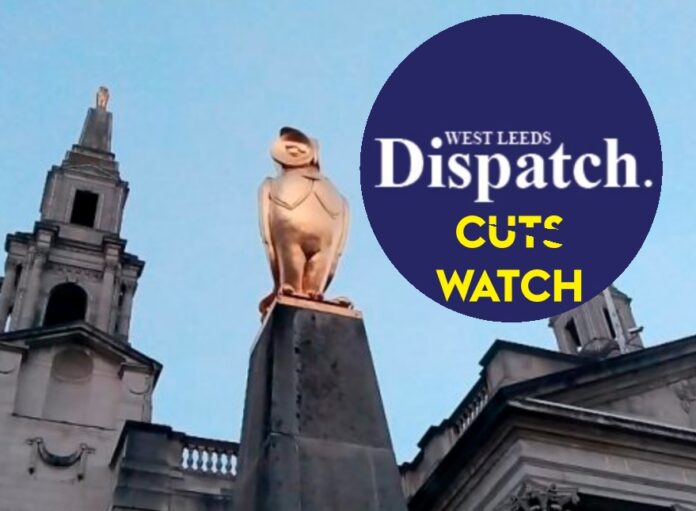Words: Richard Beecham, local democracy reporter
The leader of Leeds City Council has pleaded with Government to commit to more funding for social care, after a report out today claimed local authorities may have to continue raising council tax to help plug funding gaps.
A paper from the Institute for Fiscal Studies claimed that, under current Government spending plans, annual council tax increases of 3.6 per cent would be needed for the next three years just to ensure councils can provide the same range and quality of services.
This would be on top of yearly council tax rises over the past few years from Leeds City Council, which have led to households paying 35 percent more than they did a decade ago.
Leeds City Council leader James Lewis has today called on Chancellor Rishi Sunak to announce extra funding for councils in his autumn statement later this month.
But the Government claimed it has already pumped billions of pounds more into the system. Cllr Lewis said:
“Independent analysis shows that the Conservative government has cut too deeply into the grant funding for local councils over their 11 years in power which means residents face reduced services and higher tax bills.
“They can address this in the autumn statement by funding councils properly or they will have to answer to local people about their actions when people end up paying more and getting less.”
The study from the IFS – an independent economics research organisation – claimed council tax increases alone would be unlikely to meet local authority costs over the next two years, given the continuing need for some additional Covid-19-related spending. It added:
“We project that an increase of 4 per cent in April 2022 could still leave English councils facing a £2.7 billion funding gap in 2022–23. Moreover, councils’ forecasts suggest that they will need a further top-up to their budgets over this winter to meet ongoing COVID-19 pressures.”
It also made the point that council tax increases raised less money in poorer parts of the country where more properties are in lower tax bands. This means there would need to be bigger percentage increases in council tax bills to meet rising costs in less rich areas, unless the government redistributed more of its grant funding to such areas.
Responding to the claims, a Ministry of Housing, Communities and Local Government spokesperson said:
“The Government has allocated more than £12 billion directly to councils since the start of the pandemic – with more than £6 billion available to spend as they see fit – recognising that councils are best placed to deal with local issues.
“We have also taken historic action to fix the social care crisis – the Health and Social Care Levy will raise £12 billion a year to fund the NHS and social care.
“The Spending Review will continue to focus on supporting jobs and delivering the public’s key priorities.”
The Government added that councils were being given “the funding to move towards paying a fair rate for care, which will drive up quality and improve carers’ conditions.”
In Leeds City Council’s 2011/12 budget, council tax for a band D property cost around £1,123 a year – this eventually rose to £1,521 this year – which works out at an extra £33 a month per household.
At the same time, since 2011/12, the council has seen its overall revenue budget decrease from £582m to £435.3m this year. When adjusted for inflation, this works out at a real-terms cut of £328m.
West Leeds Dispatch‘s Cutswatch series has been following proposed council budget cuts over the past few months here.

